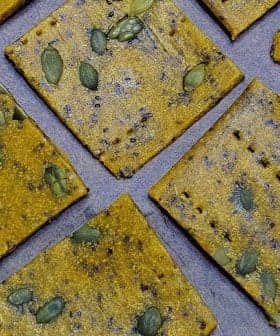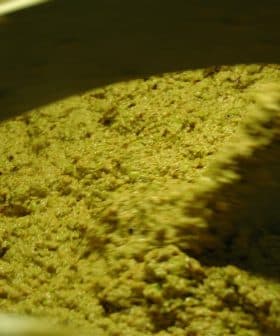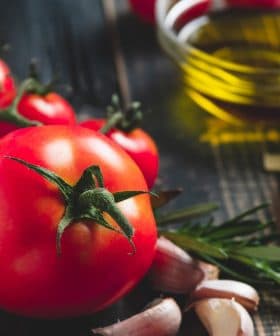Storage Temperature's Big Impact on Shelf Life of High-Phenolic Olive Oils
The EU Commission Regulation allows a health claim on olive oil stating that polyphenols protect blood lipids from oxidative stress, requiring 20 grams to contain a minimum of 5 milligrams of specific compounds and specifying daily consumption for benefits. The shelf life of olive oil is affected by changes in temperature, oxygen, and light, with lower temperatures increasing stability and potentially allowing for an extension of the expiration date for high-quality olive oil.
The European Union Commission Regulation (EU) No. 432/2012 allows an important health claim on olive oil that states, “Olive oil polyphenols contribute to the protection of blood lipids from oxidative stress.”
For this claim to be valid, 20 grams of the olive oil has to contain a minimum of 5 milligrams of hydroxytyrosol and its derivatives such as oleuropein and tyrosol. Additionally, the label is to specify that 20 grams of the olive oil are to be consumed daily to benefit from this claim.
Providingextra virgin olive oil that meets the requirements of the health claim may be as simple as decreasing storage temperatures
While the health claim is justified due to the presence of polyphenols in high-quality virgin olive oil, one of the biggest hurdles to the implementation of this claim is that olive oil polyphenol content decreases over time.
Fluctuating physical conditions that virgin olive oil is subjected to during its journey from the manufacturing plant until it reaches the consumers, such as changes in temperature, oxygen and light, cause oxidative and hydrolytic deterioration of the olive oil. These chemical changes shorten the shelf life of virgin olive oil as they not only decrease the phenolic content olive oil but also affect the sensory quality of olive oil resulting in loss of taste, flavor and appearance.
Clearly, there is a need to find ways to extend the shelf life of virgin olive oil without compromising its organoleptic quality or nutritional value.
To this end, researchers from the Laboratoire Biotechnologie de l’Olivier in Tunisia and Universidad de Castilla-La Mancha in Spain investigated the effect of temperature on stability of phenolic compounds in virgin olive oil during long-term storage.
The results of the study, published in the Journal of Agricultural and Food Chemistry, are based on research carried out on extra virgin olive oil from four common varieties of olives, Chemlali, Chetoui, El Hor and Oueslati, found in Northern and Central Tunisia. Olive oil from these olives naturally differs in the phenol, tocopherol, and antioxidant content.
For the experiments, identicalextra virgin olive oil samples from the four varieties were stored in amber-colored glass bottles that were either left open to facilitate oxidation or closed to prevent oxidation. The samples were stored for 18 months at four different temperatures: 5, 15, 25 and 50 degrees Celsius. Every three months, aliquots of the stored EVOOs were analyzed to determine oxidation rate and polyphenol content.
As expected, oxidation was more rapid inextra virgin olive oil stored at higher temperatures in open bottles than inextra virgin olive oil stored in closed bottles at low temperatures.
While low temperatures increased shelf life of all the varieties ofextra virgin olive oil due to lowered oxidation rates, the maximum benefit of low temperatures on shelf life was observed for Oueslati EVOO, which increased from 26 weeks at 25 degrees Celsius to 44 weeks at 15 degrees Celsius.
Similarly, lower storage temperatures and closed bottled storage increased stability ofextra virgin olive oil phenols, although varietal differences were observed. Specifically, EVOOs with higher tyrosol secoiridoid compounds were found to be more stable than those with higher hydroxytyrosol compounds.
According to the authors, the findings of the study could help producers extend the expiry date of virgin olive oil based on storage temperatures and polyphenolic content of olive oil.
Currently, virgin olive oil is commercially stored at 20 to 25 degrees Celsius and the maximum storage period of virgin olive oil from bottling to consumption is 12 to 18 months.
This storage period could be increased and providing customers with high-qualityextra virgin olive oil that meets the requirements of the health claim may be as simple as decreasing storage temperatures to 15 degrees Celsius during production and in stores.









